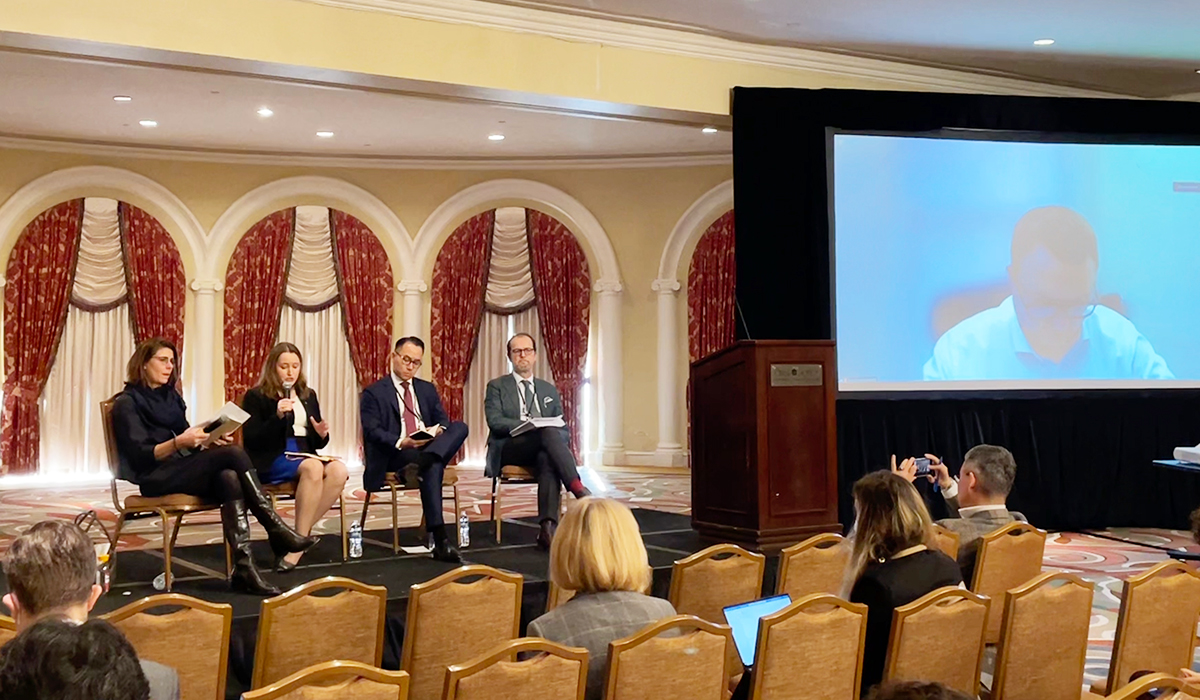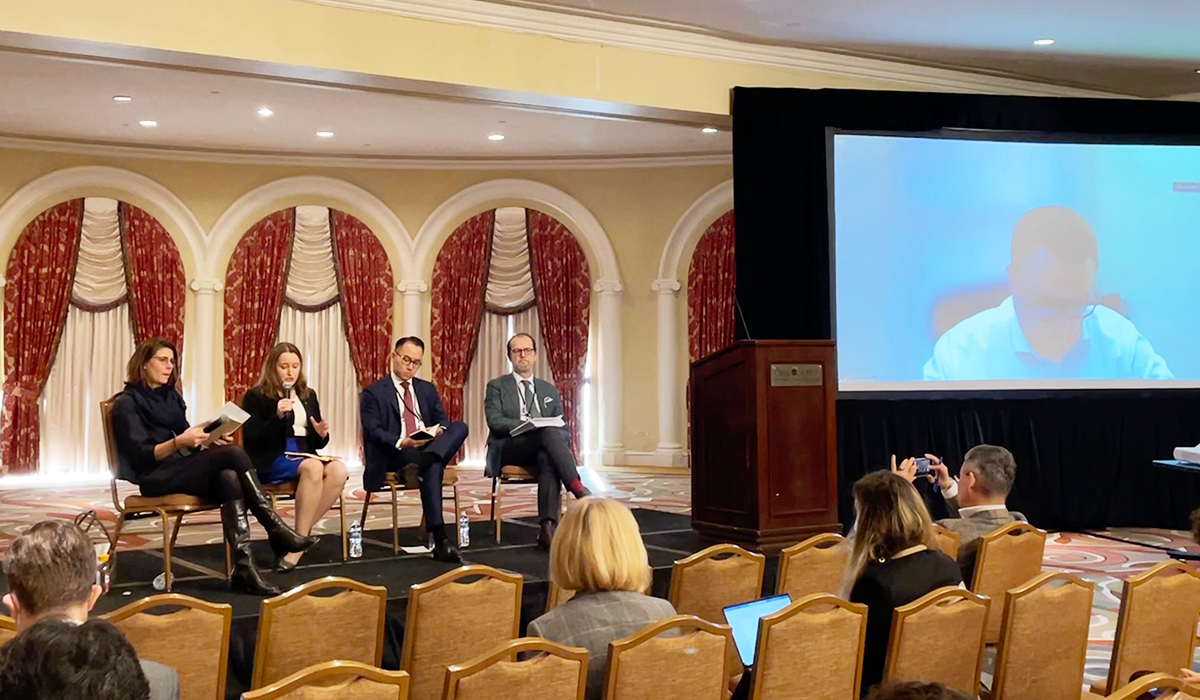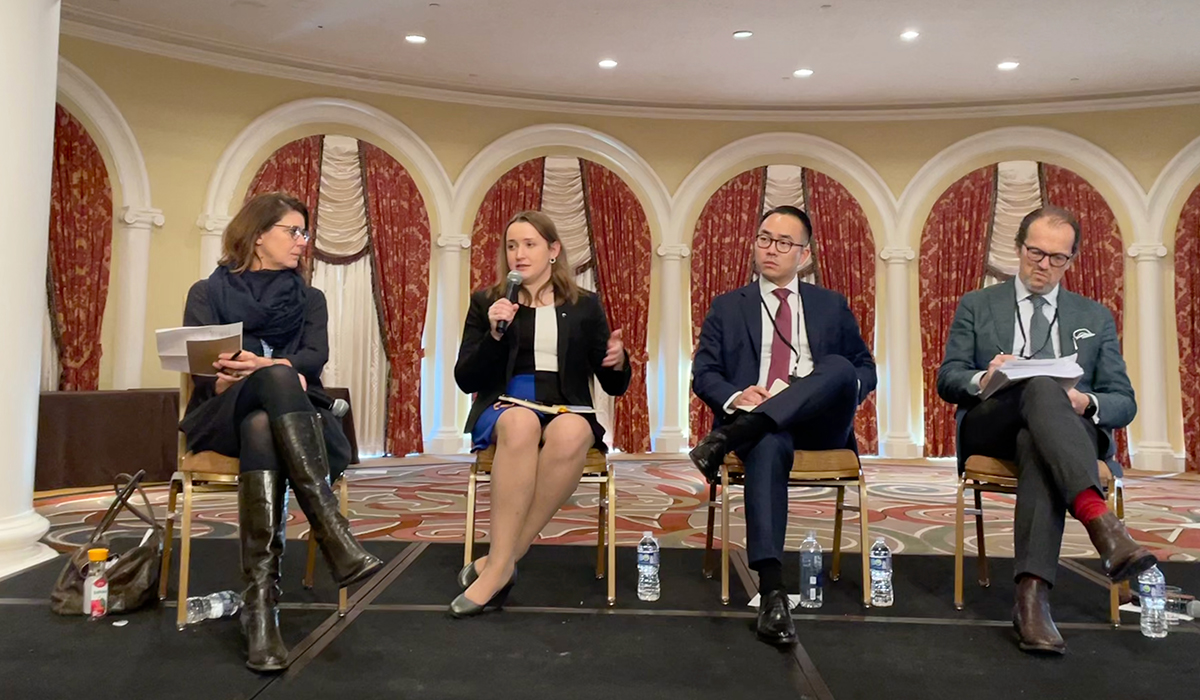Asset recovery developments since the start of the war in Ukraine

The war in Ukraine has caused hundreds of billions of dollars of damage so far, including to critical infrastructure. Funding the country's ongoing and post-war reconstruction efforts is a topic very much under debate. Some suggest that assets frozen under war-related sanctions could be used to partly fund the reconstruction. Could they? How?
Together with the Basel Institute, Transparency International Ukraine hosted a session at the International Anti-Corruption Conference 2022 in Washington D.C. to explore these questions with those on the front lines of tracing, freezing and seizing assets subject to sanctions.
The session aimed to generate a realistic understanding of options for recovering assets frozen under sanctions related to the war in Ukraine. It also sought to identify and promote new instruments that countries could introduce for this purpose. Ultimately, these discussions and actions will contribute to global efforts to accelerate asset recovery and push boundaries of current practice.
Takeaways
- The full-scale invasion of Ukraine has given impetus to the country’s asset recovery efforts. A specialised Freeze and Seize Task Force was set up within the Prosecutor General's Office to help freeze, seize and confiscate Russian assets; its mandate has now expanded to cover assets related to sanctions. A legislative amendment has expanded the range of crimes under which assets may be forfeited. In addition, a new administrative procedure has been established that enables assets related to Russian aggression and sanctions to be forfeited; five cases are already proceeding. This fresh momentum is significant, given the slow progress in Ukraine’s previous efforts to recover stolen assets.
- Though unprecedented in their number and scope, the sanctions imposed on Russian individuals and companies, as well as the Russian state, are temporary and non-punitive. This means they are not a legal basis for confiscation. Confiscation would usually require a criminal conviction or a judgement under non-conviction based forfeiture or unexplained wealth/illicit enrichment legislation.
- Efforts to target kleptocratic assets need to extend beyond the assets themselves – yachts, airplanes, bank accounts, etc. – to the surrounding infrastructure, from service providers to so-called enablers. These efforts can and already have incentivised individuals and companies to proactively identify assets subject to sanctions that may otherwise have missed.
- The significance of international efforts to proactively target the assets of sanctioned individuals goes beyond the utility of putting pressure on Russia’s political establishment. The efforts send a powerful message of the strong political commitment among Ukraine’s international partners to cut off the financing of Russia’s war machine and to support Ukraine’s citizens in defending their sovereign nation. Where frozen assets can subsequently be confiscated, the funds could potentially be of significant utility in Ukraine’s reconstruction and recovery.
- International cooperation between Ukraine and other states on asset recovery has strengthened considerably, particularly in the EU and US. The establishment of dedicated taskforces has helped. There is a welcome openness among international partners to explore every possible avenue to admit dual criminality, including under civil / non-conviction based forfeiture laws and other such laws that are effective but not yet widely in use.
- Enforcing criminal penalties for attempted sanctions evasion could be a powerful option for confiscating at least some of the assets currently frozen. In Europe, following a Council Decision on 28 November 2022 that adds sanctions violation to the list of EU-wide crimes, the European Commission is putting forward a new directive that harmonises criminal definitions and penalties for violating sanctions. One positive effect of making sanctions evasion an EU-wide crime is that it helps to mobilise authorities across the board, from asset recovery agencies to financial intelligence units.
- Private assets, corporate assets and sovereign assets require different mechanisms of seizure, forfeiture and disposal. Sovereign Russian assets that have been frozen could potentially be placed in an escrow account or trust fund, to be returned only if there is a peace agreement and as part of a binding reparation agreement. Other mechanisms would need to be applied for private and corporate assets.
- A compensation mechanism would ease the use of confiscated private or corporate assets to fund Ukraine’s reconstruction and recovery. Such a mechanism would need to be developed through close cooperation with Ukraine’s authorities and civil society, to ensure it aligns with the approach to compensations developed by Ukraine’s Ministry of Justice and the related General Assembly resolution.
- Ukraine’s vibrant civil society has a strong role to play in providing specialist expertise and oversight throughout the process. Civil society representatives have been in constant communication with the EU taskforce, for example, and as Anton Korynevych stated: “From the perspective of the Ukrainian Government, cooperation with civil society is of utmost importance in all areas related to accountability.”
- The urgency of efforts to confiscate kleptocratic assets needs to be balanced with respect for due process and the rule of law. Ambition, creativity and pushing boundaries are all welcome – indeed essential. But pushing too far could risk hurting Ukraine more than it helps, and undermining the very principles for which anti-corruption advocates in the democratic world have fought for so long. Ukrainian civil society can help keep that focus on asset recovery mechanisms that work in practice and respect the rule of law that they and their compatriots are fighting to preserve.
About the session
The session took place at International Anti-Corruption Conference 2022 on 9 December 2022 and was organised by Transparency International Ukraine together with the Basel Institute on Governance. Many thanks to the Swiss Agency for Development and Cooperation Ukraine programme at the Swiss Federal Department of Foreign Affairs for their continued support to the Basel Institute and to asset recovery efforts in Ukraine, among many other valuable programmes.
Gretta Fenner moderated the panel, which featured:
- Péter Csonka, Deputy Director, Directorate Criminal Justice, Directorate General for Justice and Consumers, European Commission
- Anton Korynevych, Head of Freeze and Seize Task Force, Ukraine
- David Lim, Deputy Director, Task Force KleptoCapture, Department of Justice, United States
- Kateryna Ryzhenko, Deputy Executive Director for Legal Affairs, Transparency International Ukraine
See other #IACC2022 sessions in which the Basel Institute and partners were involved.





